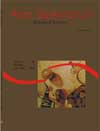On the occurrence of testate amoebae (Protozoa, Rhizopoda) in Brazilian inland waters. I. Family Arcellidae
Abstract
The purpose of this paper is to increase the knowledge on testate amoebae in Brazilian inland waters, specifically the family Arcellidae (Protozoa, Amoebozoa, Rhizopoda). In this paper the current occurrence and geographical distribution of this family in Brazil is discussed. A total of 26 infra-generic taxa was recorded, among them 24 taxa belong to the genus Arcella and 2 to Pyxidicula. Arcella vulgaris Ehrenberg, A. gibbosa Pénard, A. megastoma Pénard, A. dentata Ehrenberg, A. discoides Ehrenberg, A. brasiliensis Cunha and A. crenulata Deflandre were the species with greater number of records. Some taxonomic information is also providedDownloads
Download data is not yet available.
Published
2008-05-09
How to Cite
Lansac-Tôha, F. A., Velho, L. F. M., Zemmermann-Callegari, M. C., & Bonecker, C. C. (2008). On the occurrence of testate amoebae (Protozoa, Rhizopoda) in Brazilian inland waters. I. Family Arcellidae. Acta Scientiarum. Biological Sciences, 22, 355-363. https://doi.org/10.4025/actascibiolsci.v22i0.2875
Issue
Section
Biology Sciences
DECLARATION OF ORIGINALITY AND COPYRIGHTS
I Declare that current article is original and has not been submitted for publication, in part or in whole, to any other national or international journal.
The copyrights belong exclusively to the authors. Published content is licensed under Creative Commons Attribution 4.0 (CC BY 4.0) guidelines, which allows sharing (copy and distribution of the material in any medium or format) and adaptation (remix, transform, and build upon the material) for any purpose, even commercially, under the terms of attribution.
Read this link for further information on how to use CC BY 4.0 properly.
0.6
2019CiteScore
31st percentile
Powered by 

0.6
2019CiteScore
31st percentile
Powered by 












1.png)




3.png)













